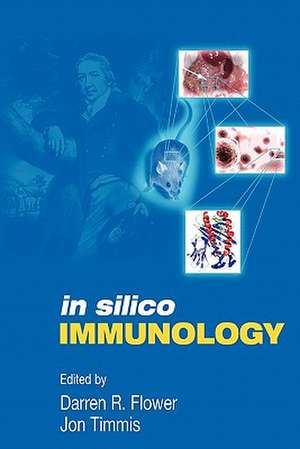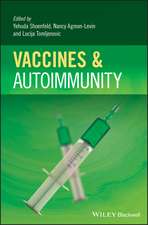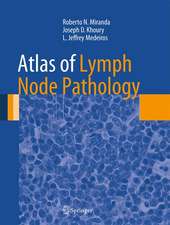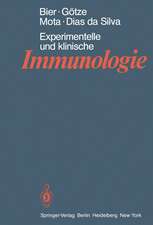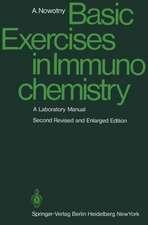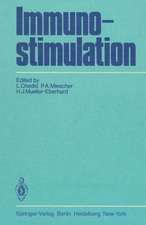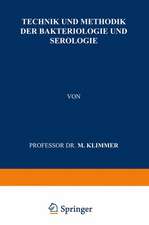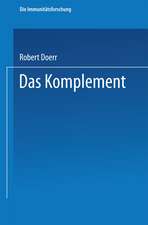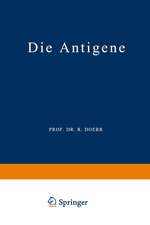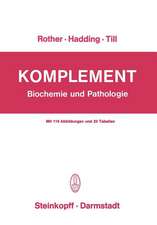In Silico Immunology
Editat de Darren D.R. Flower, Jon Timmisen Limba Engleză Paperback – 4 noi 2010
| Toate formatele și edițiile | Preț | Express |
|---|---|---|
| Paperback (1) | 1103.75 lei 6-8 săpt. | |
| Springer Us – 4 noi 2010 | 1103.75 lei 6-8 săpt. | |
| Hardback (1) | 1108.87 lei 6-8 săpt. | |
| Springer Us – dec 2006 | 1108.87 lei 6-8 săpt. |
Preț: 1103.75 lei
Preț vechi: 1161.85 lei
-5% Nou
Puncte Express: 1656
Preț estimativ în valută:
211.20€ • 221.10$ • 174.76£
211.20€ • 221.10$ • 174.76£
Carte tipărită la comandă
Livrare economică 05-19 aprilie
Preluare comenzi: 021 569.72.76
Specificații
ISBN-13: 9781441942647
ISBN-10: 1441942645
Pagini: 468
Ilustrații: XVIII, 451 p. 89 illus.
Dimensiuni: 155 x 235 x 25 mm
Greutate: 0.65 kg
Ediția:Softcover reprint of hardcover 1st ed. 2007
Editura: Springer Us
Colecția Springer
Locul publicării:New York, NY, United States
ISBN-10: 1441942645
Pagini: 468
Ilustrații: XVIII, 451 p. 89 illus.
Dimensiuni: 155 x 235 x 25 mm
Greutate: 0.65 kg
Ediția:Softcover reprint of hardcover 1st ed. 2007
Editura: Springer Us
Colecția Springer
Locul publicării:New York, NY, United States
Public țintă
ResearchCuprins
Overview of the book.- Overview of the book.- Introducing In Silico Immunology.- Innate and Adaptive Immunity.- Immunoinformatics and Computational Vaccinology: A Brief Introduction.- A Beginners Guide to Artificial Immune Systems.- The Nature of Natural and Artificial Immune Systems.- Computational Models of B cell and T cell Receptors.- Modelling Immunological Memory.- Capturing Degeneracy in the Immune System.- Alternative Inspiration For Artificial Immune Systems: Exploiting Cohen’s Cognitive Immune Model.- Empirical, AI, and QSAR Approaches to Peptide-MHC Binding Prediction.- MHC diversity in Individuals and Populations.- Identifying Major Histocompatibility Complex Supertypes.- Biomolecular Structure Prediction Using Immune Inspired Algorithms.- How Natural and Artificial Immune Systems Interact with the World.- Embodiment.- The Multi-scale Immune Response to Pathogens: M. tuberculosis as an Example.- Go Dutch: Exploit Interactions and Environments with Artificial Immune Systems.- Immune Inspired Learning in a Distributed Environment.- Mathematical Analysis of Artificial Immune System Dynamics and Performance.- Conceptualizing the Self-Nonself Discrimination by the Vertebrate Immune System.
Textul de pe ultima copertă
Immunology is an all important science, addressing, as it does the most pressing medical needs of our time: infectious disease and transplantation medicine. It has given us vaccines on the one hand and therapeutic antibodies on the other. After a century of empirical research, it is now poised to finally reinvent itself as a quantitative, genome-based science. Like most biological disciplines, immunology must capitalize on the potentially overwhelming deluge of new data delivered by post-genomic, high throughput technologies; data which is both bewilderingly complex and delivered on a hitherto unimaginable scale.
Theoretical immunology is the application of mathematical modeling to diverse aspects of immunology ranging from T cell selection in the Thymus to the epidemiology of vaccination. Immunoinformatics, the application of computational informatics to the study of immunological macromolecules, addresses important questions in immunobiology and vaccinology. Immunoinformatics, addresses issues of data management, and has the ability to design and implement efficient new experimental strategies. Artificial Immune Systems (AIS) is an area of computer science which uses ideas and concepts from immunology to guide and inspire new algorithms, data structures, and software development. The influence of AIS is now becoming highly synergistic through its interaction with immunoinformatics.
These three different disciplines are now poised to engineer a paradigm shift from hypothesis- to data-driven research, with new understanding emerging from the analysis of complex datasets: theoretical immunology, immunoinformatics, and Artificial Immune Systems (AIS). "in silico Immunology" is a book for the future: it will summarize these emergent disciplines and, while focusing on cutting edge developments, will address the issue of synergy as it shows how these three are set to transform immunological science and the future of health care.
Theoretical immunology is the application of mathematical modeling to diverse aspects of immunology ranging from T cell selection in the Thymus to the epidemiology of vaccination. Immunoinformatics, the application of computational informatics to the study of immunological macromolecules, addresses important questions in immunobiology and vaccinology. Immunoinformatics, addresses issues of data management, and has the ability to design and implement efficient new experimental strategies. Artificial Immune Systems (AIS) is an area of computer science which uses ideas and concepts from immunology to guide and inspire new algorithms, data structures, and software development. The influence of AIS is now becoming highly synergistic through its interaction with immunoinformatics.
These three different disciplines are now poised to engineer a paradigm shift from hypothesis- to data-driven research, with new understanding emerging from the analysis of complex datasets: theoretical immunology, immunoinformatics, and Artificial Immune Systems (AIS). "in silico Immunology" is a book for the future: it will summarize these emergent disciplines and, while focusing on cutting edge developments, will address the issue of synergy as it shows how these three are set to transform immunological science and the future of health care.
Caracteristici
In silico Immunology" summarizes the three different disciplines now poised to engineer a paradigm shift from hypothesis- to data-driven research: theoretical immunology, immunoinformatics, and Artificial Immune Systems (AIS) It will address the issue of synergy as it shows how these three are set to transform immunological science and the future of health care
